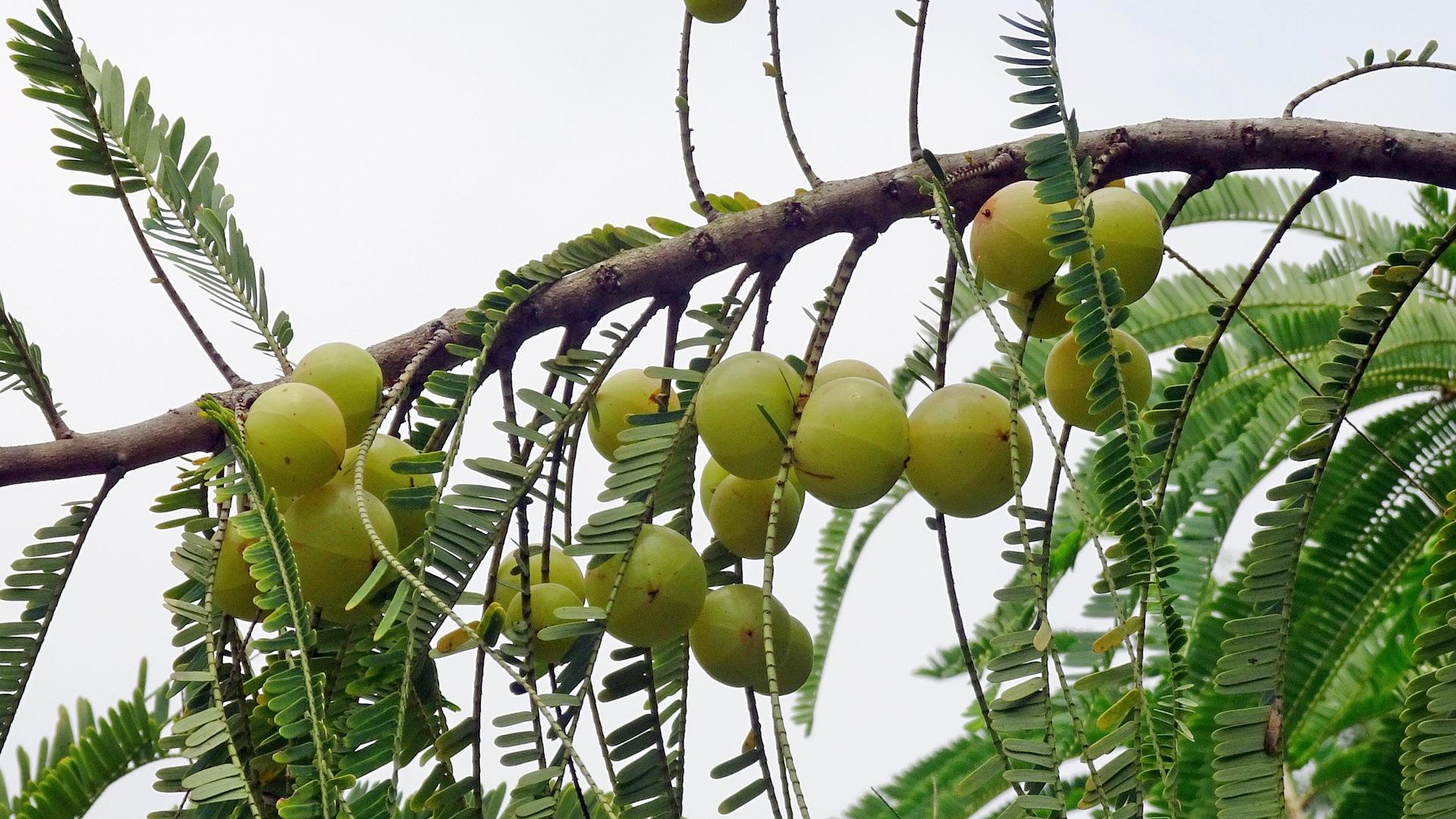Discover amla (Indian gooseberry), a potent herbal treasure that holds a myriad of health benefits. It is known as one of the best immunity boosters. In Ayurveda, amla is utilized for various purposes including promoting hair growth, its inclusion in chyawanprash, and fortifying the immune system.
In this article, let’s learn about amla’s properties, exploring its health-enhancing attributes as well as understanding its potential drawbacks. Whether you’re seeking a natural boost for your immune defenses or seeking to harness its benefits for your hair and overall well-being, amla’s versatile qualities are sure to intrigue and captivate.

Amla or Amalaki
Amla is the Indian (Hindi) name for Emblica Officinalis or Phyllanthus Emblica. It is also known as sour-tasting Indian gooseberry. Known as “Amalaki” in Sanskrit, Amla is a ‘Rasayana’ in Ayurveda and is known for its Vitamin C content and antioxidant compounds.
Amla is one of the main ingredients of Chyavanprash. Amla is known to contain vitamin C in excellent quantity (the highest known concentrations of vitamin C in the plant). The naturally found vitamin C quantity in amla is twenty times that of an orange.
Benefits of Amla in Ayurveda
- The most powerful immunity boosting food in Ayurveda.
- Amla contain vitamin C (twenty times that of an orange).
- It supports body metabolism and re-energizes the celluar functions.
- It is highly effective for people suffering from digestion related disorders.
- Have anti-inflammatory properties which nourishes tissues.
- It is an excellent antioxidant (natural).
- It promotes healthy skin, eyes, hair and nails.
- It balances agni (digestive fire in Ayurveda) and builds ojas.
Amla in Triphala
Triphala is regarded as the best Ayurvedic remedy for constipation and digestive health. Triphala is a powerful laxative made of three Ayurvedic herbs known to cure constipation. Triphala is made of Amalaki (Amla), Haritaki (Harad) and Bibhitaki (Baheda) and all of these herbs are known to cure constipation – Amalaki cures Pitta Dosha, Bibhitaki cures Kapha Dosha and Haritaki cures Vata Dosha.
- Harad is known to be a potent laxative, an astringent and lubricant which helps in loosening the stools.
- Amla is a wonderful laxative with cooling properties. It helps cool the inner stomach and intestine linings and reduces inflammation and burning sensation.
- Bibhitaki is a great natural laxative with a high amount of dietary fibres.
Amla in Chyavanprash
Everyone knows about Chyavanprash in India. Chyavanprash is an Ayurvedic mixture of sugar, honey, ghee, Indian gooseberry (amla) jam, sesame oil, berries and various herbs and spices.
Amla in Chyavanprash rejuvenates the mind and body on cellular levels. It promotes a healthy metabolism and supports the immune system.
It has a powerful medicinal effect on lungs and respiratory system as it nourishes the mucous membranes throughout the respiratory passages in the body. In terms of Ayurvedic Dosha, Chyavanprash strengthens Vata, eliminates ama (toxins) and builds ojas of the body.
Amla for Vata, Pitta and Kapha Dosha
In terms of Ayurveda, amla pacifies all three kinds of doshas (vataa, pitta, and kapha), especially pitta dosha. Amla has excellent immunity booster properties and rejuvenates tissues throughout the body and builds ojas.
It grants immunity and youthfulness, promote energy and has remarkable effects on the arterial and the respiratory system.
Amla (Vitamin C) helps boost the immunity and prevents all kinds of known viral and bacterial ailments. The antioxidants of amla helps decrease viral replication and reduces the viral propagation in the body. It also decrease all kinds of virus-induced oxidative injury which makes amla one of the best antioxidants for viral infections.
The Amla is a wonderful fruit for strengthening the lungs (responsible for Kapha Dosha), and the respiratory tract (lessens Shleshaka Kapha Dosha).
The ‘Ram-Baan’ Fruit for Eyes
Amla Berry is called Chakshushya. It is a super food in Ayurveda which strengthens the eyes. In Ayurveda, it is called rasayana for the eyes and improves weak eyesight, myopia, hypermetropia, and all kinds of eye-related diseases.
Drinking freshly prepared Amla juice every morning enhances both Ranjaka Pitta (Pitta Dosha that governs liver function and the blood plasma in Ayurveda) and Alochaka Pitta (Pitta Dosha that governs the eyes and vision in Ayurveda).
Stops Immature Hair Graying
Immature graying of hair can also be stopped by washing hair with amla powder. Amla possesses hair growth naturally. Amla has many kinds of vitamins and minerals which help scalp blood circulation and thus stimulates natural hair growth.
The Vitamin C in amla produces collagen protein which stimulates hair growth and makes hair long and dense. One must apply fresh amla juice to the scalp, leave it on for 30 minutes and rinse it off. One can use a mild cleanser to wash it off.
Though there are thousands of health benefits of amla, one must note that a night dose of amla before sleep can weaken the teeth. Overdose of amla may also irritate the throat.
